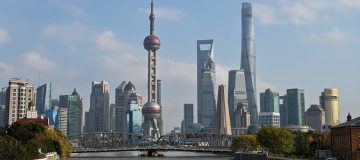Jeremy Cliffe in New Statesman:
 One might expect Ian Bremmer to be straightforwardly pessimistic in the current crisis. For one thing, the president of the Eurasia Group political risk consultancy is used to zipping around the world to meet business and political leaders. Now he is grounded and reckons any sort of new normal will take a very long time to emerge. “It’s weird,” he tells me down the phone from New York City. “I wasn’t prepared to put my life on hold for three years.” The US of all places is a gloomy spot at the moment, with more Covid-19 deaths than any other country and an increasingly ugly political mood ahead of November’s elections. Pessimism, of a sort, has been a good bet for Bremmer in the past. In 2011 he predicted a “G-Zero” world, an emerging power vacuum in international politics. The prediction has been borne out, he notes, both by trends evident at the time (a rising China reluctant to align with the West, a more self-contained US and a truculent Russia) and by others (technology driving populism, US energy independence, and the inequality bequeathed by the financial crisis) that have fully unfolded since.
One might expect Ian Bremmer to be straightforwardly pessimistic in the current crisis. For one thing, the president of the Eurasia Group political risk consultancy is used to zipping around the world to meet business and political leaders. Now he is grounded and reckons any sort of new normal will take a very long time to emerge. “It’s weird,” he tells me down the phone from New York City. “I wasn’t prepared to put my life on hold for three years.” The US of all places is a gloomy spot at the moment, with more Covid-19 deaths than any other country and an increasingly ugly political mood ahead of November’s elections. Pessimism, of a sort, has been a good bet for Bremmer in the past. In 2011 he predicted a “G-Zero” world, an emerging power vacuum in international politics. The prediction has been borne out, he notes, both by trends evident at the time (a rising China reluctant to align with the West, a more self-contained US and a truculent Russia) and by others (technology driving populism, US energy independence, and the inequality bequeathed by the financial crisis) that have fully unfolded since.
“They have made the geopolitical recession much deeper,” says Bremmer. “Now it’s like that Warren Buffett quote about only seeing who is swimming naked when the tide goes out. People are saying: ‘we don’t have leaders; no one is leading us!’ But that was the case before. The pandemic has just demonstrated it.” Yet precisely now, with the global order seemingly at its most fragile and unfixable, the geopolitical guru is tentatively offering a more optimistic take.
More here.
